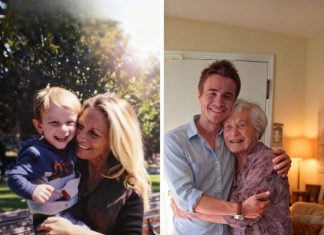The Tragic Case of Iryna Zarutska: A Ukrainian Refugee’s Death in Charlotte
The shocking murder of Iryna Zarutska, a 23-year-old Ukrainian refugee, in Charlotte, North Carolina, has sparked significant outrage and concern across the United States. This heartbreaking incident underscores the plight of refugees who flee their war-torn countries in search of safety and a new life, only to encounter unforeseen dangers in their host environments. Iryna’s tragic story has now captivated international attention, raising critical questions about the safety of refugees and the societal challenges they often face upon resettlement.
A Day of Horror on the CATS Blue Line
On the fateful day of the incident, Iryna was riding the Charlotte Area Transit System (CATS) Blue Line train, a seemingly routine commute that took a horrific turn. Witnesses describe an ordinary atmosphere on the train, filled with daily commuters absorbed in their own lives. Reports indicate that Iryna was seated with her headphones in, focused on her phone, likely seeking a moment of distraction from the tumult of her past. It was at this moment that Decarlos Brown Jr., the alleged perpetrator, sat down behind her. In a shocking act of violence, Brown brutally stabbed Iryna in the neck without any prior interaction or warning, resulting in her immediate death at the scene. The sheer brutality of this attack was captured on surveillance footage, which has since gone viral, sending ripples of disbelief and sorrow throughout the online community and raising alarms about public safety on public transit systems.
The Aftermath: Arrest and Charges
Following the horrific attack, the Charlotte-Mecklenburg Police Department swiftly apprehended Brown, who now faces serious charges of first-degree murder. Investigations into his background reveal a troubling history marked by numerous legal troubles and reported struggles with mental health challenges. His first court appearance occurred on August 29, where it was revealed that he was denied bond and mandated to undergo a competency evaluation, a move that highlights the complexities of the case. As the legal proceedings unfold, the incident has brought to light broader implications regarding public safety and the urgent need for comprehensive mental health reform. The community is now grappling with not only the loss of a vibrant young life but also the systemic failures that allowed such a tragedy to occur.
Political Reactions and Media Coverage
The political response to Iryna’s murder has been particularly noteworthy, with reactions highlighting the divided nature of contemporary discourse on crime and safety. Former President Donald Trump addressed the incident during a press briefing, describing it as “horrible,” yet surprisingly admitted to being unaware of the details of the crime until prompted. His comments have ignited discussions about the responsibility of public figures to acknowledge and address violent crimes, especially those that impact vulnerable populations such as refugees. In a subsequent post on Truth Social, Trump elaborated on his views, emphasizing the urgent need for stricter measures against repeat offenders, particularly those released through cashless bail systems. This reaction reflects a broader trend of using high-profile cases to advocate for changes in the criminal justice system, drawing attention to the complex narratives surrounding crime and safety.
The Broader Context: Refugees and Public Safety
Iryna Zarutska’s tragic fate comes at a time of heightened scrutiny surrounding the treatment of refugees in the U.S. A growing number of individuals fleeing conflict zones like Ukraine has raised pressing questions about their integration and safety in a new environment. Advocates argue that welcoming refugees should come with robust support systems that can facilitate their integration into society. This includes access to mental health services, job training programs, and community integration initiatives, all designed to help refugees adapt to their new lives while ensuring their safety. The circumstances surrounding Iryna’s death have ignited necessary debates over how societies can balance compassion for those in need with the imperative to ensure public safety. It serves as a stark reminder of the vulnerabilities that many refugees face when encountering a system that may not fully understand their needs.
The Call for Justice and Change
As the legal proceedings against Decarlos Brown continue, there is a growing demand for justice not only for Iryna but for all refugees who risk their lives to escape violence and instability. Community activists and leaders are galvanizing efforts to advocate for reforms in both the criminal justice system and the treatment of mental health issues in the U.S. Protests and vigils in Iryna’s memory have emerged, uniting individuals from various backgrounds to call for systemic changes that prevent similar tragedies from occurring. This incident has also highlighted the importance of media attention in bringing these issues to light, as many feel that the silence surrounding Iryna’s story represents a broader societal neglect of the struggles faced by vulnerable communities. The need for a cohesive narrative that encompasses the complexities of migration, safety, and community well-being is more pressing than ever.
Conclusion: Remembering Iryna Zarutska
Iryna Zarutska’s life, though tragically cut short, has ignited a vital conversation about the intersections of migration, public safety, and mental health. As we reflect on her story, it is essential to remember that behind the headlines and statistics are real individuals with hopes and dreams. Advocating for systemic change and ensuring that the voices of refugees are heard is crucial in honoring her memory and preventing future tragedies. The call for justice in Iryna’s case is more than a demand for accountability; it is a plea for humanity and compassion in a world too often marked by violence and indifference. It is imperative that we confront the uncomfortable truths surrounding these issues and strive toward a society that values every life and strives to protect the most vulnerable among us.

















